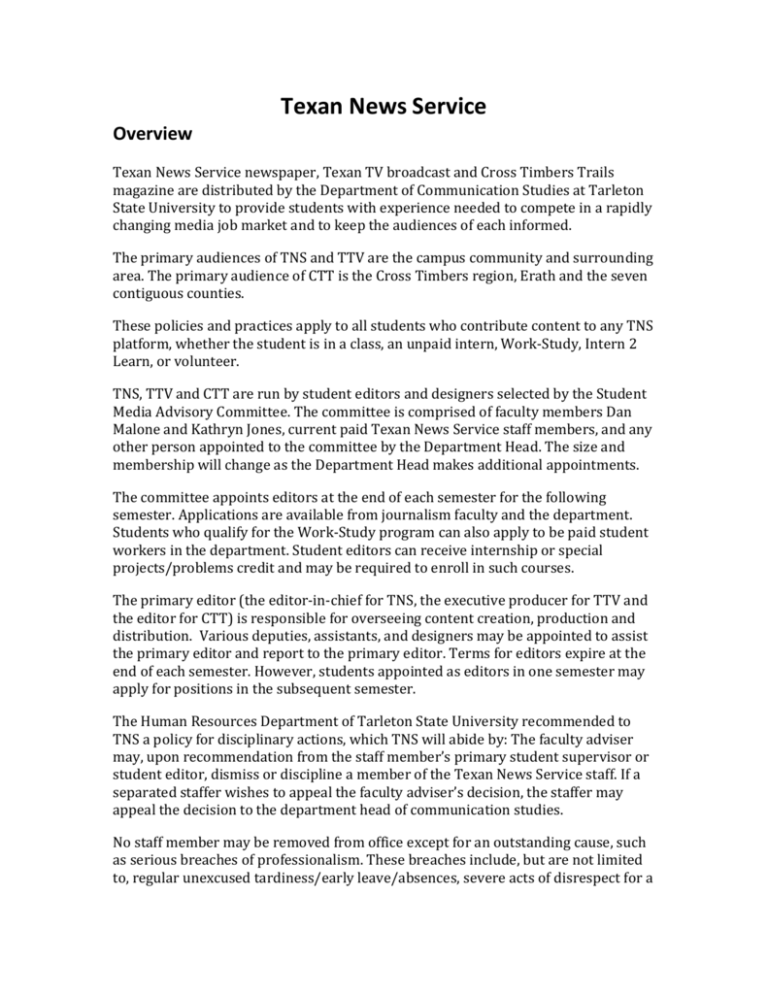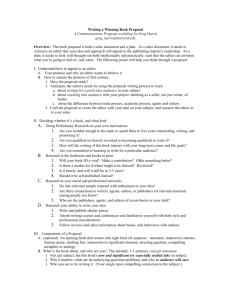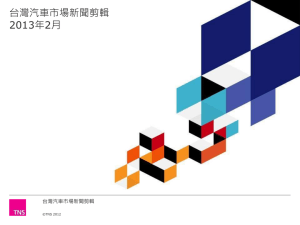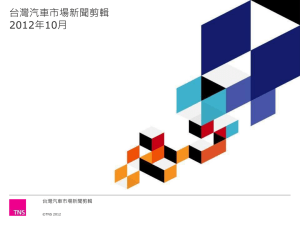strive fairness
advertisement

Texan News Service Overview Texan News Service newspaper, Texan TV broadcast and Cross Timbers Trails magazine are distributed by the Department of Communication Studies at Tarleton State University to provide students with experience needed to compete in a rapidly changing media job market and to keep the audiences of each informed. The primary audiences of TNS and TTV are the campus community and surrounding area. The primary audience of CTT is the Cross Timbers region, Erath and the seven contiguous counties. These policies and practices apply to all students who contribute content to any TNS platform, whether the student is in a class, an unpaid intern, Work-Study, Intern 2 Learn, or volunteer. TNS, TTV and CTT are run by student editors and designers selected by the Student Media Advisory Committee. The committee is comprised of faculty members Dan Malone and Kathryn Jones, current paid Texan News Service staff members, and any other person appointed to the committee by the Department Head. The size and membership will change as the Department Head makes additional appointments. The committee appoints editors at the end of each semester for the following semester. Applications are available from journalism faculty and the department. Students who qualify for the Work-Study program can also apply to be paid student workers in the department. Student editors can receive internship or special projects/problems credit and may be required to enroll in such courses. The primary editor (the editor-in-chief for TNS, the executive producer for TTV and the editor for CTT) is responsible for overseeing content creation, production and distribution. Various deputies, assistants, and designers may be appointed to assist the primary editor and report to the primary editor. Terms for editors expire at the end of each semester. However, students appointed as editors in one semester may apply for positions in the subsequent semester. The Human Resources Department of Tarleton State University recommended to TNS a policy for disciplinary actions, which TNS will abide by: The faculty adviser may, upon recommendation from the staff member’s primary student supervisor or student editor, dismiss or discipline a member of the Texan News Service staff. If a separated staffer wishes to appeal the faculty adviser’s decision, the staffer may appeal the decision to the department head of communication studies. No staff member may be removed from office except for an outstanding cause, such as serious breaches of professionalism. These breaches include, but are not limited to, regular unexcused tardiness/early leave/absences, severe acts of disrespect for a fellow coworker, consistent failure to meet deadline and/or disregard for necessary work asked of the individual. The Communications Department, TNS, TTV, and CTT do not and will not tolerate any inappropriate sexual advances and/or degrading remarks against any gender, race, sexual orientation, culture, or religion. Acts as such will be immediately addressed, and those involved will be contacted for due process as soon as possible. Primary editors are advised by a faculty member appointed by the department head. All content should be reviewed by the staff member’s primary editor prior to distribution. In the event that the author and the editor disagree on the appropriateness of content, they shall refer the matter to the adviser and committee, which shall have final say. Proofs of published content will be shown to the adviser prior to publication. In any case of a news story being accusatory in nature, the adviser will review the content before publication or broadcasting. Content will be created by paid staff, unpaid staff and volunteers. All content creators will follow said guidelines. At present, the primary adviser for www.texannews.net, Texan TV and the Texan News newspaper is Dan Malone. He can be reached by phone or text at 817-2352451. Kathryn Jones is the primary adviser for Cross Timbers Trails magazine and can be reached at 254-974-0326. If one adviser is not available, consult with the other. If neither is available and the situation is urgent, consult with Dr. Charles Howard. Expectations for student publications through TNS, TTV and CTT can be found in the attached “Rights and Responsibilities” form. Expectations for all staff members’ attire can be found in the attached “Dress Code” form. Rights and Responsibilities Student journalists exercise the same First Amendment rights and responsibilities as professional journalists, foremost among them the right to practice their craft without fear of retaliation or censorship. Editors should strive to serve their audiences above all others. With these rights come professional responsibilities outlined below. Hours Work-Study students and Graduate Assistants may work up to 20 hours a week. Intern 2 Learn students must work 225 hours cumulatively over the course of the semester to qualify for the Applied Learning Experience (ALE) credit. Work-Study and Intern 2 Learn students should turn-in their hours each week. At the beginning of each semester, the TNS editor-in-chief will prepare a schedule showing the hours and days that each student is expected to work. Absences When a student is unable to work assigned times and/or days, the student should let the editor-in-chief AND the faculty adviser know in advance that they will not be able to work an assigned day(s) and/or hour(s). If an employee is scheduled to work and doesn’t have anything to do, they will ask one of the editors for an assignment. If the editors do not have an assignment, the employee will ask a faculty adviser for a story idea. If neither have an assignment to give, the employee may use the spare time to study in the office. Regularity Texan News strives to update its platforms with fresh content every news cycle, which in most cases mean every 24 hours. Some updates take weeks to do, some days, but many updates can be done in an hour or so. When there is new content on TNS, a newspaper, magazine or show, an assigned employee will promote it on the TNS Facebook page, Twitter, Instagram, etc. Attribution All content will be properly and fairly attributed. Plagiarism is acceptable in no circumstance. Ethics The staff adheres to the Code of Ethics of the Society of Professional Journalists. It can be found here: http://www.spj.org/ethicscode.asp Professional Affiliations Staff are encouraged—and paid staff are required—to become members of the Society of Professional Journalists. The link to the SPJ website can be found here: https://www.spj.org/autodues.asp Professionalism and Newsroom Decorum Editors are expected to foster a professional atmosphere in the newsroom and to comport themselves professionally while conducting business outside the office. This means treating colleagues and sources respectfully. When conflict among staff arise, staff should try to resolve the conflict themselves and consult faculty only if they are unable to resolve the problem themselves. Coarse language should be avoided in the newsroom. Equipment and Security The last employee to leave the newsroom will be sure that all door are locked and lights and screens are turned off. If the employee does not have a key, they will call Control Center at extension 9265 and request that they lock the door(s). Computers, iPads, video cameras, still cameras and other equipment in Grant 396A and B may be checked-out only to students working on content for TNS. The equipment must be signed-out by a paid student worker and must include the name, phone number and email address of the student checking-out the equipment. Students who lose or damage equipment may be responsible for replacing it. Only those who have signed the “iPad Use Agreement” may check-out iPads. Incidental Use of University Equipment Student workers, like faculty and staff, are public servants and are expected to conform to all applicable university procedures and rules and complete all employee training required by Tarleton State University or the Texas A & M System, including but not limited to Rule 29.01.02 T2 Incidental Computer Use. Style Staff shall follow Associated Press Style. When style is not explained by the AP Stylebook, refer to the TSU Style Guide. It can be found here: https://tsustyleguide.wordpress.com/2012/02/15/t/ Accuracy Staff shall strive to make sure all broadcasts and text are accurate. Challenges to the accuracy of any story, corrections and clarifications should be brought to the attention of primary editors and faculty advisers. Journalists, being human, occasionally make mistakes. An important principle in the ethical practice of journalism is prompt correction of mistakes. Corrections to pieces that have already been published will be posted under the “Corrections, Clarifications” tab on texannews.net. This page can be found here: http://www.texannews.net/home/corrections-clarifications/ Fairness Staff should strive to represent all sides of any issue reported. Content of an accusatory nature must give all parties involved a chance to comment. That means they must be contacted and given the opportunity to respond prior to publication of distribution. Competition Media competition is healthy. Scoops, or exclusive content, are highly valued in the profession. From time to time, staff may find themselves competing with other media on or off campus. In such situations, the goal should be to compete and beat the competitor without sacrificing accuracy or fairness of any report. Conflicts of Interest Conflicts of interest should be avoided. Such conflicts include any relationship that would call into question the integrity or motivation of staff, such as membership in organizations in the news or affiliations with competing media. Reproduction Content may be reproduced by other media with the following stipulations: All reproduced content must credit the staff member(s) who created it and the media that distributed it. Advertising Guidelines Alcohol advertising No alcohol advertising. Advertising restaurants or other venues that serve alcohol is acceptable. (i.e. City Limits, is acceptable, as long as alcoholic products are not inherently advertised either visually or textually) Tobacco advertising No tobacco advertising. This includes e-cigarettes and all related products. Advertising stores or other locations that sell tobacco is acceptable, as long as tobacco products are not inherently advertised either visually or textually. Tattoo advertising Acceptable as long as the service is presented in a professional manner. (i.e. no pictures of bare backs, thighs, or other provocative images) Homework services Not acceptable. This includes advertising for services to write papers, do students’ homework, etc. Gambling, others No advertising of illegal activity whatsoever. Dress Code* Student journalists need to be dressed in a way that represents TNS well when in the newsroom, on camera for Texan TV News, conducting interviews, or taking photographs for stories. These guidelines should be followed any time a student journalist is representing TNS in any of these, or other, ways. Newsroom No athletic attire Shorts/skirts/dresses must be “finger-tip-length” Tops must cover appropriately o No low-cut tops o No mid-drift-revealing tops No ripped/stained clothing Closed-toe shoes if going into the TTV studio Interviews/Photography Follow newsroom guidelines above (environment permitting) Must wear TNS press badge Business professional On Camera Business professional NO GREEN No distracting jewelry/accessories Shoulders covered – preferably wearing a blazer/cardigan/etc. Tops must cover appropriately o No low-cut tops o No mid-drift-revealing tops No hats No attire representing other universities *Primary editors (Editor-in-Chief, Managing Editor, Magazine Editor and Executive Producer) and advisers reserve the right to ask staff members and volunteers to improve their attire and excuse them to do so during production or creation of any TNS product, whether it be during a broadcast, an interview, a staff meeting, story writing in the office, etc. Such an excuse—due to improper adherence to dress code—that causes failure to meet deadline or inability to create a story, product, etc., will be the fault of none other than the staff member or volunteer that was improperly dressed. Any lack of production caused by such an issue will not be the fault of the primary editor that gave the excuse.








